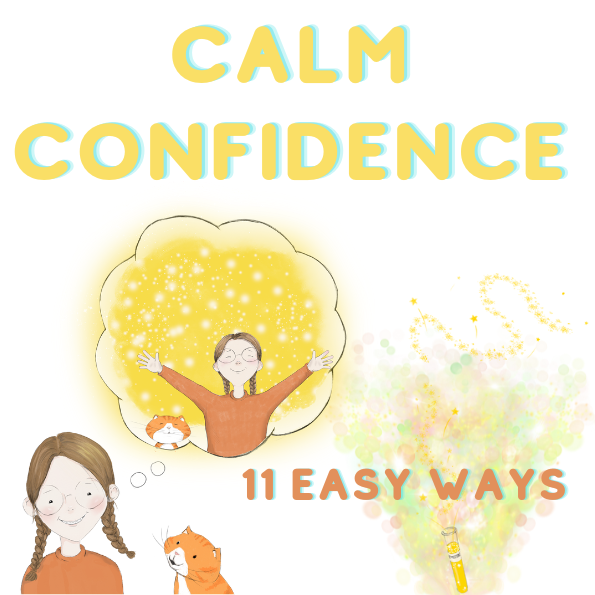
by Kay Spare Login | Nov 2, 2023 | be well, brain aim, mental health, next generation, NLP, parenting, psychology, resilience, work well, workingwithkids
Engineering The Mind
Working with young people (and their parents) means helping them understand the basics of designing a future self who is calm, confident, enjoying successful relationships, and is thankful for learning some basic secrets of happiness.
This process applies to any age!
“It is impossible to control any goal that requires other people to change.”
Case study: Lonely Lana
Moving schools had been a good decision for 14-year-old Lana but had left her yearning for her old group of pals. But her mind had played tricks on her, recalling the past in a kinder light, yet in truth, she had been quite unhappy with them. The NEW friendship group felt impermeable, and she came to see me asking for help with ‘social exclusion’.
We established that a couple of girls in the group were being really kind and friendly towards her, but this didn’t satisfy Lana and she found herself:
- Dismissive of easily available friendships.
- Keeping her sights fixed on getting attention from the big personalities.
- Negatively mind-reading the new group’s intentions.
- Negatively interpreting the body language of certain group members.
- Feeling awkward and self-conscious
- Fantasising that the old school friendship group was perfect.
We summarised our initial discussion in terms of her:
THOUGHTS – the group was unsure about her and viewed her with suspicion.
FEELINGS – self-conscious, unhappy, and awkward.
BEHAVIOUR – wanting to withdraw from the group.
Delving deeper into her thinking patterns she soon revealed some fundamental beliefs that were triggering her own unhappiness.
Trigger thoughts included:
“Making new friends is hard work and tiring”
“Why don’t they? …. (act the way I want them to act)”
“I have lost my perfect old friends”
These thoughts triggered her ‘feel-bad’ strategy.
She ran this strategy in her mind ‘on-repeat’.
Neural plasticity meant that those self-harming thoughts became automatic – because she had practiced paying attention to them.
Soon into our session, Lana realised that her true (unconscious) friendship goal had been to be the popular one amongst a large group of girls. But she didn’t yet realise that goal was impossible to achieve since it required:
- Exhausting effort to try to change the opinions and behaviours of others.
- The others to prioritise her needs above their natural ordering.
I invited her to understand that it is impossible to control any goal that requires other people to change. Trying to do that had been exhausting and frustrating, wasting energy and leading to disappointment in others and (self) generating feelings of unhappiness.
EXPLORING SOLUTIONS
I wondered if Lana could amend her friendship goal to “I want to feel relaxed and authentic around new people”. That would require her to expect nothing back from them, just to be curious and interested in the evolving relationships.
After all, a goal like this means being in charge of a goal you can actually control!
EXPERIMENT
We worked hypnotically to visualise Lana pitching up at school, looking for fun people to get to know while feeling relaxed, interested, humorous and happy. This imprinted a new neurological template which she could practise (through neural plasticity) until it became her autopilot.
FEEDBACK
We reframed her thinking so that SHE could reflect on, and positively adjust, her personal thoughts, feelings, and behaviours – it’s an inside job!
SKILLS
I taught her techniques for self-regulating wayward feelings.
FEED FORWARD
We looked through time to visit her future-self. The person who is calm, confident, enjoying a range of successful relationships, and thankful for learning some basic secrets of owning next-generation happiness.
Think this is just about children? Think again!

by Kay Spare Login | Sep 4, 2023 | be well, mental health, NLP, parenting, psychology, resilience, work well
What does ‘respect’ mean to you?
So often people tell me their happiness/unhappiness is related to whether they feel respected or disrespected. And I wonder how they measure those matters; are there rules?
I hear people complaining that they feel small if they don’t receive enough/certain respect. And I hear other people bragging that they feel big when they demand respect by making others bend their words or behaviours.
Big or small –using the matter of respect to gain validation is at best a hollow win and at worst, a weapon.
Awareness. Is key. If you want to nourish your mind, take note of your reaction to the concept of respect. What does it mean to you?
My antidote to ‘issues’ arising from this matter, is to look for shining examples of people who neither play big nor small. Instead, they self-regulate their internal responses to external stimuli and get on with flowing along their personal path.
How does your ‘respect-o-meter’ work?

by Kay Spare Login | Jul 3, 2023 | be well, brain aim, kids, mental health, mind-body, resilience, work well, workingwithkids
Do you have your own definition of good mental health? Have you ever thought about this? What are your guiding principles?
According to the UK Mental Health Foundation, good mental health is:
- The ability to learn
- The ability to cope with AND manage change and uncertainty
- The ability to form AND maintain good relationships with others
- The ability to feel, express and manage a range of positive AND negative emotions
In which of these areas do you excel? And which one needs some development? Does this resonate with you?
I’m a big fan of wellbeing personal audits since all of these ‘abilities’ once brought to your conscious awareness, can be trained, and refined. Accountability helps balance the current trend of victimhood.
You probably know how important it is to get clarity about the future you are aiming your brain towards. Aiming your mind and body towards better mental health seems like time well spent, don’t you think?
With that in mind, I’ve adapted the MHF definition into an easy exercise to help you do review your own needs. I suggest you write out your answers as it has a stronger imprint on the sub-conscious mind.
- Is learning new things important for you? Is it easy? What would make it easier?
- How adaptable are you to change and uncertainty? Where in your life, would you like to grow more flexibility and how would the ‘future you’ benefit from doing this?
- Do you easily form new relationships? And how do you nurture longer term relationships? Where could you better connect with others?
- Are you comfortable with your full range of emotions? With which emotions do you need to get more comfortable? Which ones do you want more of and which ones do you need less of?
- Are you being the best you can be so that any time, any place anywhere you shine? Which aspects of your personal growth do you prioritise?
Is your ‘north star’ shining from the constellation called thrive?

by Kay Cooke | Jan 30, 2023 | next generation
Created in 2010, these fun, easy to follow brain training activities are ideal for young families and primary classrooms.
Instant Calm – Belly Breathing
Quietly Clear – Building Confidence
Brainy learning – Balance Body & Mind
Brain balance – Finger Play
Personal power – Heartful
Choose feelings – Spinning Feelings
Perfect peacefulness – White Feather
Brain boost – Eyes Around
Chaos to calm – Glitter Ball
Power up – Power Pack
Reassure an anxious mind – Finger Chat
Welcome to these practical activities that help you minimise stress and create feelings of calm and confidence. You will find increased self-esteem
and smarter thinking are very pleasant by-products.
This kit will train your nervous system to be calmer and to stay calm and confident in challenging situations. Practising them regularly will mean that you’ll get better at being able to do them whenever you really need to.
There are 11 fun activities for you to experiment with, each one is proven to help develop resilience. CLICK HERE

by Kay Cooke | Jan 30, 2023 | be well
“If you always do what you always did, you’ll always get what you always got.”
Henry Ford
Does that make sense to you?
Where are the ‘problem-repeats’ in your life?
You know it’s often easier to notice those patterns in other people’s lives, but when you cast your your mind back through your timeline, which problems keep repeating?
Did you ever try to change them?
Did you ever find a really good coach to help you harness the superpower of imagineering?
Your future starts in imagination – whether you are imagining what you are going to do later today, tomorrow, or next year – you’re setting your brain’s GPS.
We walked on the moon thanks to someone’s imagination. Yet some people terrorise and limit their future selves with wayward imaginineering! And so it needs to be harnessed and handled with precision. NLP is an amazing tool to help you do this easily.
For now, you could start by imagining what would happen if a mysterious force extinguished ‘problem-repeats’ from your world and breathed new life-energy into your life. What differences shine through? What does not change at all?
Imagination is a super skill, learn to use it with super precision. Isn’t it time to shine?







Recent Comments